They won’t make your cramps worse or stretch out your vagina!
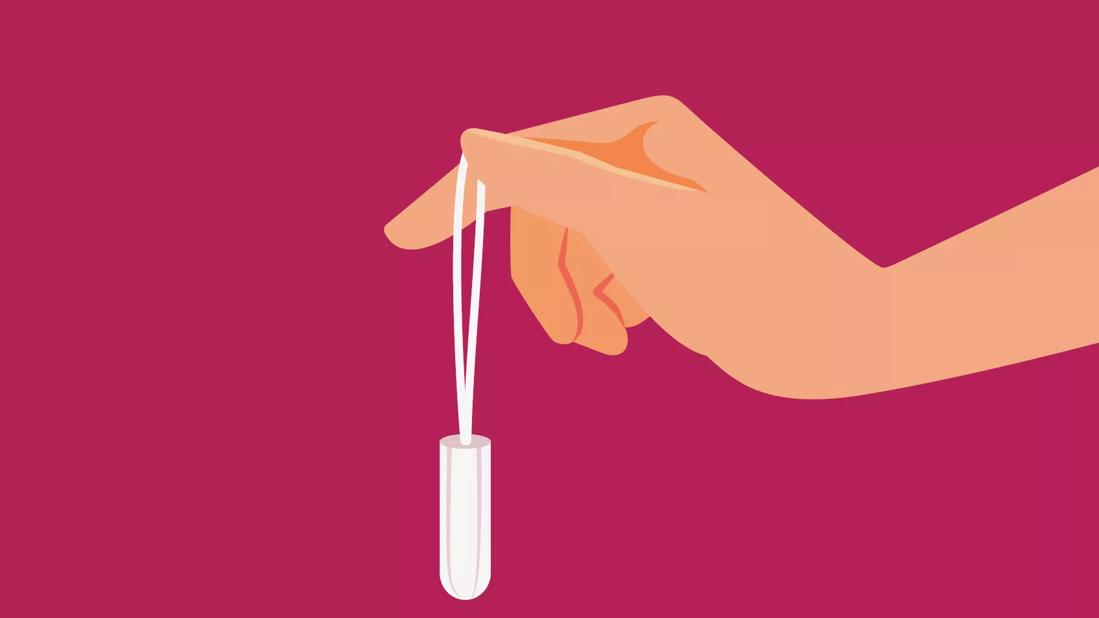
Trying to get the truth about tampon use can be like playing a bad game of telephone: Everyone tells you something a little bit different, and the information seems to change as it gets passed down and repeated.
Advertisement
Cleveland Clinic is a non-profit academic medical center. Advertising on our site helps support our mission. We do not endorse non-Cleveland Clinic products or services. Policy
To get true, science-based answers, it’s best to hear from a healthcare professional. Women’s health specialist Sara Youngblood, CNP, answers your most pressing questions about using tampons and clears up some common misconceptions you might’ve heard.
There are plenty of reasons you may not be sure about tampons.
You were never taught about them. If you didn’t have family members who used tampons, or if you didn’t feel like you could ask about them, you may not have learned much about tampons. “If you don’t really have people in your family who can have that discussion with you, there’s a barrier to getting the proper knowledge on how to use them,” Youngblood says.
You’re unsure about your body. “Not everyone is comfortable with the anatomy of the vagina, and you could be unsure about putting something inside of it, especially if you haven’t had sexual intercourse,” Youngblood notes.
You don’t feel comfortable talking about them. The term “private parts” extends to the way a lot of people feel about conversations related to the reproductive system. For example, maybe your parents didn’t allow questions about tampons, or they taught you incorrect information about them to shut down conversations, like by saying that tampons would take away your virginity (not true!).
Advertisement
If tampons were uncomfortable to wear, no one would! “Tampons should definitely not hurt, although you may feel a little bit of initial discomfort when you first put one in,” Youngblood says.
Once you insert a tampon properly, though, you shouldn’t be able to feel it. If it doesn’t feel right once it’s in you, a few things may be happening:
“Most people shouldn’t feel any residual pain once a tampon is in place,” Youngblood says.
This one is totally untrue. Using tampons will not make you “loose” or cause your vagina to stretch or change shape. Once you’ve removed a tampon, your vagina goes right back to its usual shape and size.
“The natural anatomy of the vagina is very stretchy,” Youngblood explains. “Think about it: A whole baby can come through it, and comparatively, a baby’s head and a tampon are vastly different in size!”
This myth is actually related to another myth: that your hymen tears the first time you have sex. And actually, neither of these things is necessarily true.
Your hymen is a tissue membrane that covers part of your vaginal opening. It’s flexible and stretchy, but over time, it loses its elasticity due to everyday movement, playing sports, having sex and, yes, using tampons.
Eventually, everyone’s hymen thins and tears. But except in cases of vaginal trauma, no singular action, like having sex or using a tampon, will definitively break your hymen.
“Using tampons alone will not cause your hymen to break,” Youngblood says, “but it’s natural for it to eventually tear, and it’s not something to be worried or concerned about.”
Advertisement
This view, which is perpetuated by some cultures and religious communities, is inaccurate and untrue. Tampons are used for period control only, and they’re not in any way related to your sexuality or your virginity.
“Using a tampon doesn’t take away your virginity,” Youngblood reassures. “Virginity is related to having sexual intercourse.”
Some people swear that tampons worsen their menstrual cramps, but there’s no evidence of this. Cramps are caused by contractions in your uterus, and tampons never make it that far into your body. They remain in your vagina, which doesn’t play a role in menstrual cramping.
“Cramps happen when your body releases chemicals called prostaglandins, which trigger the muscles in your uterus to constrict,” Youngblood explains. “That’s when your uterus releases its lining and you have your period.” (Prostaglandins can also contribute to period poops and particularly smelly farts.)
OK, here’s the thing: Yes, you can get toxic shock syndrome (TSS), a rare but life-threatening condition, from tampons. If you’re using them correctly, though, the chances are very low.
Studies show that leaving the same tampon in for too long is the most likely way to acquire this condition, which causes toxins to enter your bloodstream. TSS was common through the 1980s, but tampon manufacturers have since made changes to their products that have lessened the likelihood of developing it. Now, TSS affects an estimated 1 in 100,000 people.
Advertisement
To avoid TSS, change your tampon regularly. “We recommend putting in a fresh, new tampon every four to six hours, and definitely don’t leave the same one in for longer than eight hours,” Youngblood says.
As long as you don’t leave your tampons in for longer than the recommended amount of time, they shouldn’t cause yeast infections or any other bacterial imbalances in your vagina.
It’s important that you only insert one tampon at a time. Using two tampons can increase your risk of toxic shock syndrome and make it more likely that one of the tampons will get wedged up at the top of your vaginal canal. (Tampons can’t get lost in your body, but they can get lodged just out of your reach.)
“If you’re concerned about a heavy menstrual flow, switch to a higher-absorbency tampon,” Youngblood says, “and if you’re worried about saturating that, you may want to use a pad at the same time.”
For the most part, though, you shouldn’t be soaking through a super-plus tampon within an hour or two. If your periods are that heavy, make an appointment to speak with a gynecologist to discuss possibilities.
Urine and menstrual blood come out of different holes, so you can definitely pee with a tampon in. Tampons go into your vaginal opening, while urine comes out your urethra, a hollow tube that connects to your bladder.
Advertisement
Your urethra and vaginal opening are pretty close to one another, so the string of your tampon might get a little wet when you pee — but it’s nothing to worry about. “Urine is very sterile, so getting a little bit of it on the tampon string does not increase your risk of infection or anything like that,” Youngblood says.
You can take the opportunity to remove your tampon and put in a fresh one, if you’d like, or you can leave it in and simply pat the string dry when you’re done peeing.
You can have a bowel movement while wearing a tampon, but it may also be a good time to take out your tampon and put in a new one when you’re done using the bathroom.
For starters, the strain of pooping may cause the tampon to come out, whether partially or all the way.
“Sometimes, the force of pushing for a bowel movement can dislodge your tampon, just because the canals for stool and the vagina are pretty much on top of each other,” Youngblood explains.
You also risk cross-contamination. While urine is sterile, stool (poop) definitely isn’t. “If you get stool on the string and then leave the tampon inside you, bacteria like E. colican get into the vagina and cause a urinary tract infection,” she warns.
If you want to leave your tampon in when you poop, it’s smart to tuck the tampon string into the folds of your labia to avoid getting any fecal matter on it.
If you have a question about tampon use (or anything else body-related), don’t hesitate to ask your doctor or another healthcare provider. “We’re invested in educating and empowering you to better understand how to take care of yourself,” Youngblood says.
Learn more about our editorial process.
Advertisement

It depends on your menstrual flow, and a little trial and error

Yes, with the right absorbency level and maximum time-frame

There are better — and healthier — ways to be environmentally friendly
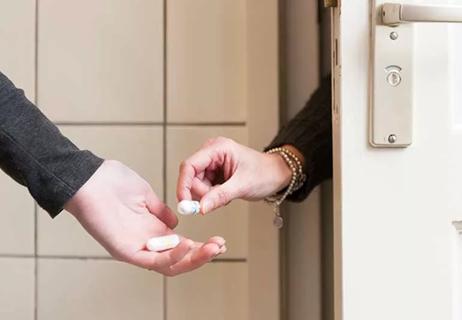
From using one at night to how often you should change them
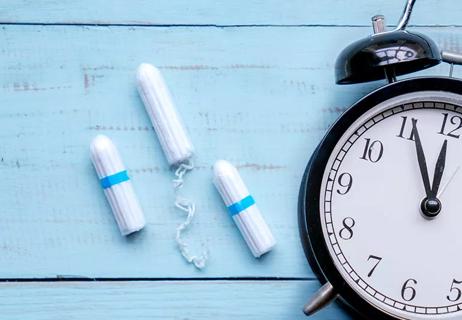
In addition to toxic shock syndrome, you risk other vaginal infections
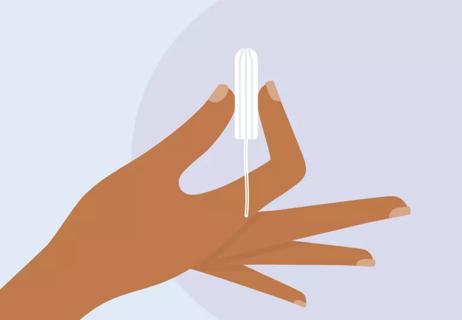
Key steps include picking the right level of absorbency and inserting it at the correct angle
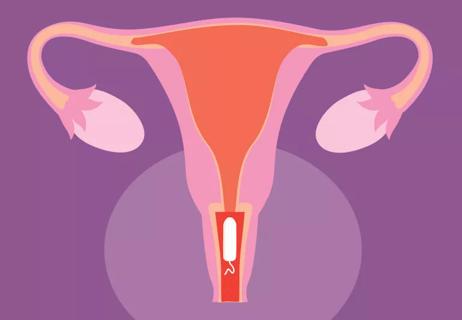
It can get squished and lodged, but not lost

The truth behind this “hygiene” illusion

Type 2 diabetes isn’t inevitable with these dietary changes

Applying a hot or cold compress can help with pain